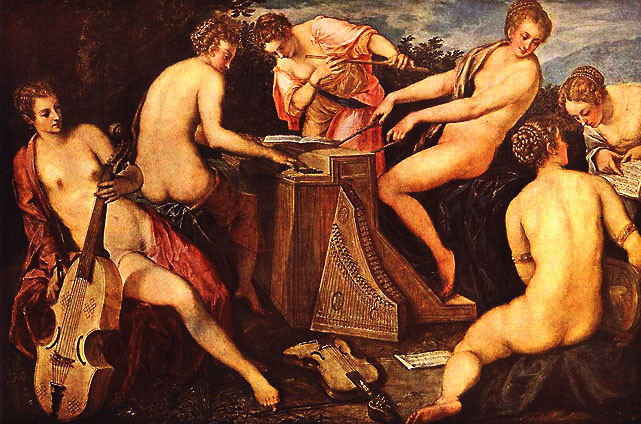
“Women Making Music” (Date unknown)
Today is Tintoretto‘s birthday (1518-1594).
I’ve noticed while trolling for Frye quotes how interesting it is to see who or what he’ll mention in passing to make a larger point, as he does here with Tintoretto. It’s always easy to get the measure of Frye’s genius in bulk; but there is a particular pleasure in picking it up in the tiniest detail. And, in a pleasant bit of serendipity, the larger point of the quote below nicely complements the painting above.
Once we have understood the self-imposed limitations of Elizabethan music and realized that its whole spirit is domestic and intimate, that it is Marvell but never Milton, Vermeer but never Tintoretto, Jane Austen but never Tolstoy, we shall accept it for what it is and not indulge in evolutionary reveries. . . We have dropped [the notion of evolution] in literature: we no longer say that poetry has “improved,” that Dryden found it brick and left it marble, or that Pope or Tennyson or anyone else represents centuries of “development.” We know now that poetry never improves; it only alters. But musical criticism, owing to the illiteracy of most musicians, has a way of lagging a century or two behind literary criticism, and while the general outlook of Lives of the Poets is dead, that of Johnson’s friend and contemporary Dr. Burney is still alive. Hence it is generally accepted that everything in Elizabethan music is a crude and unformed beginning of what later composers progressively improved on. (CW 25, 168)
